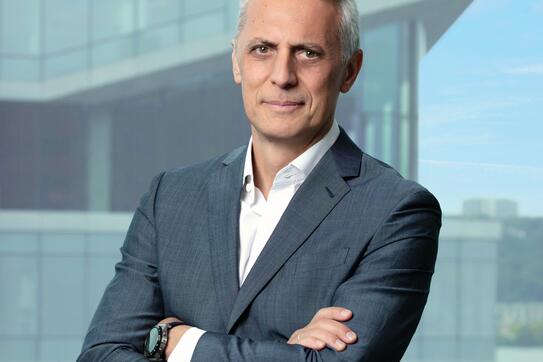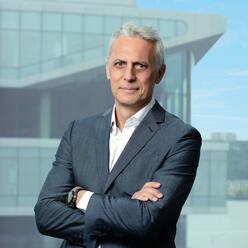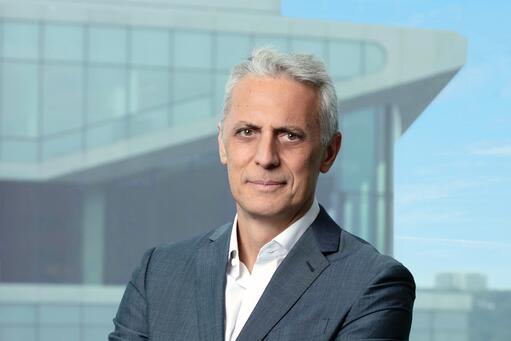The foundation of that legacy was laid in the early 20th century when the theory and practice of value investing was pioneered by CBS Professors Benjamin Graham and David Dodd. As the finance industry continues to evolve, the School remains at the vanguard of its development, shaping the next generation of value investors and thought leaders in finance.
The most transformative technology of our time is artificial intelligence. It is revolutionizing almost every facet of society—from healthcare to education to how we do business. This is especially true for asset management, where top investment firms are using the technology to improve operational efficiency, communication, and cybersecurity.
The evolving role of AI in asset management holds the potential for increased efficiency, data-driven Edge, and tactical investment decisions. It also poses an important question that many industries are grappling with now: How can we balance AI-powered efficiency with the need for human oversight and ethical decision-making? I can think of no one better to provide Edge on understanding and utilizing AI than Professors Harry Mamaysky, Michael Johannes, Tania Babina, Charles Calomiris, and Kent Daniel, who is pushing the boundaries of AI in the field of quantitative analysis.
Beyond the world of AI, our faculty members are leading the way in other cutting-edge research. Of particular note is the work of Professor Stijn Van Nieuwerburgh, who has quantified the massive value destruction in regions that are heavily reliant on office occupancy and property taxes—what he calls “the urban doom loop.”
Other faculty members are helping advance our understanding of key issues impacting the finance industry, leading the way with essential, cutting-edge work. For example, Mamaysky's research on the influence of news on investor behavior is helping to improve our understanding of the financial markets, while Professor Jesse Schreger's work on sovereign debt and exchange rates has informed congressional panels examining the role of international financial institutions in the global economy. Other faculty—such as Professors Tomasz Piskorski, who studies the $10 trillion US residential mortgage market, and Pierre Yared, who develops research on central bank policy—document and share important perspectives on the outlook for financial policy and regulation.
Private equity has long been a powerful force in the world of finance, and to stay at the forefront of this field, our Private Equity Program has been in a continuous state of evolution since its inception in 2007. One of the program's newest courses, Private Equity Finance, is designed to give students an insider's view of the essential aspects of corporate finance relevant to the private equity industry. Under the stewardship of Professor Michael Ewens, the course equips students with versatile skills to propel them throughout their professional journeys—and introduces them to some of the industry's most interesting players, many of whom are (of course) CBS alumni, such as Juliana Anderson '15 (Tailwind), Diego Donoso '12 (Apollo), and Elliot Feldman '16 (Cerberus).
Our connection to private equity runs deep, in particular through our esteemed alumnus Henry R. Kravis '69, co-founder and co-executive chairman of Kohlberg Kravis Roberts & Co. and a member of the CBS board. Henry is rightly regarded as a pioneer of the private equity industry, having spent more than four decades financing, analyzing, and investing in public and private companies, as well as serving on the boards of a number of KKR portfolio companies.
Finance is truly in our DNA, and it will continue to be a central part of our mission to develop leaders and enrich society through new research and ideas.

Costis Maglaras
Dean, Columbia Business School
David and Lyn Silfen Professor of Business


